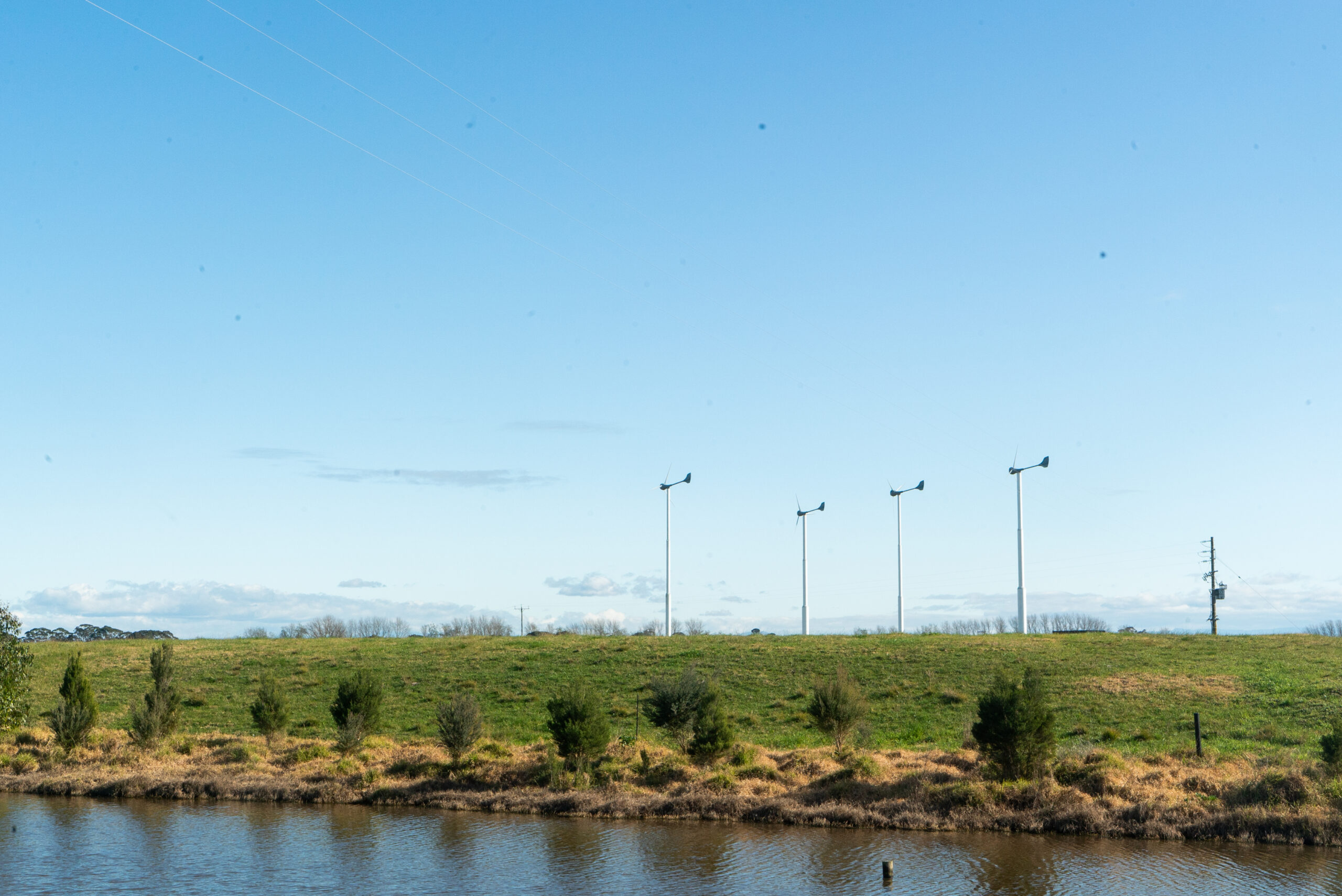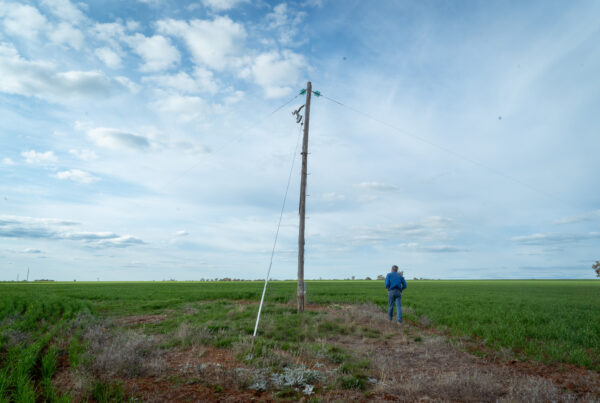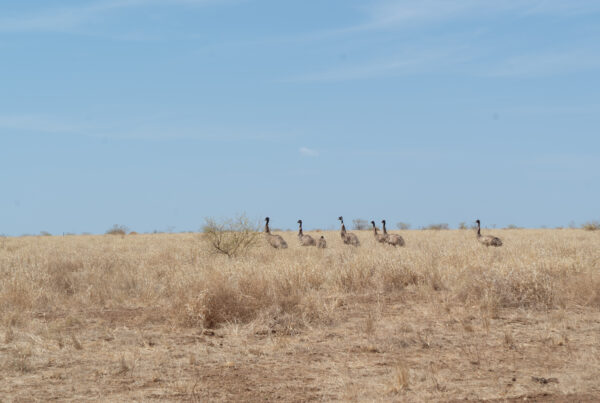11 October 2024
Farmers for Climate Action (FCA) welcomes the opportunity to provide a submission on the Tasmanian Emissions Reduction and Resilience Plan for Agriculture. To inform our submission FCA held a policy roundtable with our Tasmanian farmer members and drew on insights collected from Tasmanian farmers over the last twelve months.
Key Points
- Farmers need to “know their number,” meaning they must collect emissions data to establish a baseline of their carbon output. This will enable them to accurately track and reduce their emissions over time. Mixed-commodity farms, in particular, require additional support, both in using emissions calculators and in gathering direct measurements for more precise tracking.
- Clear guidance and support is required to assist farmers to collect and manage emissions data for upcoming reporting requirements, especially scope 3 reporting, so farmers can confidently participate in sustainable supply chains.
- The adoption of renewable energy on Tasmanian farms is slowed by challenges such as infrastructure limitations in the transmission and distribution networks, outdated regulations, and insufficient financial incentives and support. Despite these barriers, Tasmanian farmers are eager to integrate renewable energy into their operations, particularly through agrivoltaics, and to expand their energy storage capacity to achieve energy independence and lower costs.
- Empowering farmers with the education, support, and financial incentives needed to confidently participate in carbon sequestration projects will enable them to play a key role in carbon reduction efforts. Farmers specifically seek clear guidance on whether to sell carbon credits or retain them for future emissions insetting. They are also looking for opportunities to combine carbon sequestration with initiatives that improve biodiversity and soil health, ensuring broader environmental benefits.
- Addressing the concerns of Tasmanian farmers about the future insurability of their farms due to climate change is necessary to allow farmers to keep farming with the necessary business protections.
- Improving local food security and supply chain resilience, including for smaller farmers, must be a priority, with more localised approaches and partnerships to build durability.
- Alleviating the knowledge gap on farm-level mitigation, regulations, and market forces is key to empowering farmers, with both trusted local experts and farmer peers being instrumental in driving change.
- Farmers see methane-reducing technologies for livestock as a key opportunity to cut emissions and seek implementation support.
- Collaboration at different scales, including through farming innovation hubs and cross-sector partnerships, is critical for building resilience and achieving sustainability in agriculture.
About Farmers for Climate Action
Representing over 8,300 farmers and backed by 45,000 supporters nationwide, Farmers for Climate Action seeks deep emissions reductions this decade to protect our farmers and our food supply. FCA is made up of farmers, agricultural leaders and rural Australians advocating for strong economy-wide climate policies.
What future opportunities do you think will have the most Impact?
Baselining
Ensuring that farmers have the tools and support needed to baseline their properties by collecting emissions data must be a priority. Knowing farm baselines is critical for farmers to effectively track and reduce emissions from their operation. Farmers highlighted that specific support is needed for mixed-commodity farms, where multiple calculators are required because it can be challenging to find a cross-commodity calculator. FCA suggests the Tasmanian Government explore opportunities from the newly developed Agricultural Innovation Australia calculator and support its use in Tasmania. Many farmers also highlighted that they would like assistance to take direct measurements of their emissions on farms. This may include financial support to install emission measuring devices on their property, such as flux towers, or doing soil sampling across farms. This type of action could be delivered through the identified, On-farm Emission Reduction and Resilience Assessment.
Carbon Sequestration
In consultation with FCA’s Tasmanian farmer members, it was made clear that there is a need for more education and support around carbon sequestration projects on farms in Tasmania. Farmers highlighted that clearer guidance on whether to sell credits or hold them for future emissions insetting is necessary before undertaking a project. Concerns around ownership of credits produced on farms for projects funded by corporate entities offsetting their emissions was an emerging issue raised and flagged as an area where more education and confidence in market integrity is needed. Market access still remains an inhibiting factor for farmers to participate in carbon farming under the ACCU scheme, addressing the knowledge and action gap is key to providing more opportunities to engage with the market. Farmers are seeking more local capacity for supporting, assessing and implementing projects. The Tasmanian Government, working with the Clean Energy Regulator, should take the opportunity to build this local capacity and assess. More emphasis is wanted on methodologies and activities that prioritise the synergy between biodiversity and carbon sequestration. Farmers cautioned that the conversation around sequestering carbon must not lead to “carbon tunnel vision,” and that the conversation must broaden to include soil carbon and health along with biodiversity.
Are there any priorities or future opportunities missing from this draft plan?
Renewable Energy Solutions
Tasmanian farmers want to take advantage of the opportunities that renewable energy presents to their business. Farmers highlighted that a key opportunity would be an incentivisation scheme to allow for energy storage technologies to be implemented on farms. Through such a program farmers would be able to generate their own low emissions energy and store it for use later providing energy independence. Farmers were open to not only battery storage technologies, but also exploring some of the other opportunities specific to Tasmania such as small-scale on-farm hydroelectricity.
The need for information and programs looking at mixed land use and implementing agri-voltaics into farms is necessary so that Tasmanian farmers can have the same opportunities as farmers on the mainland. To achieve this, incentives and funding to build renewables into farm operations are necessary, as well as alleviating some of the challenges which make connecting renewable energy difficult. For this, farmers highlighted that they would like to see departments work more closely together as agri-voltaics and renewable energy is a cross-portfolio issue.
Addressing some of the energy grid network barriers to renewable energy in Tasmania will allow and further incentivise the uptake of renewable energy. Removing legacy regulations that discourage on-farm renewable and storage will give farmers more low emissions energy options. Dealing with multimeter and cross-title challenges for farmers will allow for lower costs, where energy generated on one title can be exported to another. Particular issues around connecting new renewable energy projects to the grid, and establishing new and refurbishing existing networks must be overcome.
Scope 3 Reporting
It was made clear from FCA’s consultation with farmers that there is a considerable need to invest in guidance and support to allow farmers to report on their emissions. Farmers are seeking clarity about how they are required to collect emissions data, what this data must include, and who to report it to. Supporting local accountants, banks and rural service providers was seen as a solution to addressing this policy gap. Addressing concerns around who owns collected emissions data is necessary, farmers must remain the owners of data collected about their emissions profile even if they are paid to collect it, or an outside entity collects the information. The reporting of scope 3 was seen as necessary to allow farmers to participate more effectively in sustainable supply chains. Addressing the raised issues now will ensure that when enforced reporting occurs for larger entities farmers are already aware of what data upstream entities in their supply chain will require.
Support for local collaboration and capacity building
Farmers raised issues that are unique to Tasmania around supply chains which must be addressed to build resilience and empower local communities. Farmers highlighted a particular example relating to livestock slaughter and processing to remove the risk of queuing and compression, especially when dealing with drought and fodder shortages. To address the under capacity of processing farmers suggested improving and supporting local businesses and prioritising local supply chains. Building in local circular economy principles and food security were other opportunities that farmers felt were missing from the plan, but would add value to farm businesses and local communities in Tasmania. Further farmers wanted to see more funding for research and extension locally, and build capacity through Tasmanian institutions, such as universities, and agricultural institutes.
Methane Reducing Technologies
Highlighting the unique emissions profile of Tasmania, farmers are seeking more investment and support for the implementation of methane-reducing technologies and practices for ruminants. Farmers wanted to see this included in the plan, which will ensure that Tasmania can meet its emission reduction targets. Some examples where Tasmanian farmers have changed practices to reduce methane include the Ashgrove Cheeses Eco Milk, which uses a methane-inhibiting feed additive to lower emissions. Farmers highlighted that they would like more information and support around whether such technology could be implemented into their business, or whether an alternative is more applicable. The Tasmanian Government should work with Research and Development Corporations to translate and research already done on farm applications.
Knowledge Gaps and Additional Concerns
Farmers highlighted that where there is inaction on emission reduction and adaptation it is not necessarily because of a resistance to change, but because of a disconnect and knowledge gaps around what is required. Bridging this knowledge gap of on-farm level mitigation, regulations, and changing market forces is essential to empower Tasmanian farmers to reduce emissions and ensure they can remain profitable and productive. Farmers highlighted that the key to bridging the gap is trusted local sources such as local agricultural services, and communities who can empower and support farmers to take action. There needs to be a coordinated effort from both government and industry to provide clear guidelines, financial incentives, and technical support to help farmers become aware of, and adopt new technologies and practices that reduce emissions.
Incentivising planting on farms was seen as an opportunity highlighted under the plan. Farmers want the government to work with them to assist them in increasing planting on their farm. Highlighting the benefits of enhancing land management practices through planting was seen as an avenue for farmers to increase the practice of planting. Further, farmers want to ensure that action taken to increase planting and bushland on their properties will not have a negative impact on their property value.
Farm Insurance
Farmers are seeking the government to support them as the cost of insurance rises and some farms become uninsurable due to climate change. Insurance is necessary to safeguard farm businesses against many different challenges that can affect a farm business ranging from impacts of infrastructure and to loss of produce. As premiums increase some farms are becoming priced out of insurance which is an enormous risk.
How can we collaborate to reduce emissions and build resilience in the agricultural sector?
Innovation Hubs
Farmers want to see more support and programs run through the Tasmanian Farming Innovation Hub. The already existing relationship between government, researchers, industry experts, and farmers through the hub should be leveraged to gain additional extension and research support. By doing so, collaboration is fostered, and this accelerates the development of sustainable practices.
Cross-Sector Partnerships
Encouraging partnerships between agricultural stakeholders, renewable energy providers, conservation groups, and local communities can lead to innovative solutions that address both emissions reductions and resilience-building efforts. Farmers are looking for more of these with a focus on building local capacity through such partnerships.
Farmers for Climate Action appreciates the opportunity to provide feedback on the Tasmanian Agriculture Emission Reduction and Resilience Plan. We look forward to continuing our collaboration with the Tasmanian Government to create a sustainable and resilient agricultural future. Should you have any questions please do not hesitate to reach out to myself, or Paul Stark, Policy and Farmer Engagement Officer, through the contact details below.
Yours sincerely,
Natalie Collard
Email: [email protected]
Phone: 1800 491 633
Web: farmersforclimateaction.org.au
Post: FCA C/- Melbourne Connect Co-Working, Lvl 2 700 Swanston Street, Carlton VIC 3053






